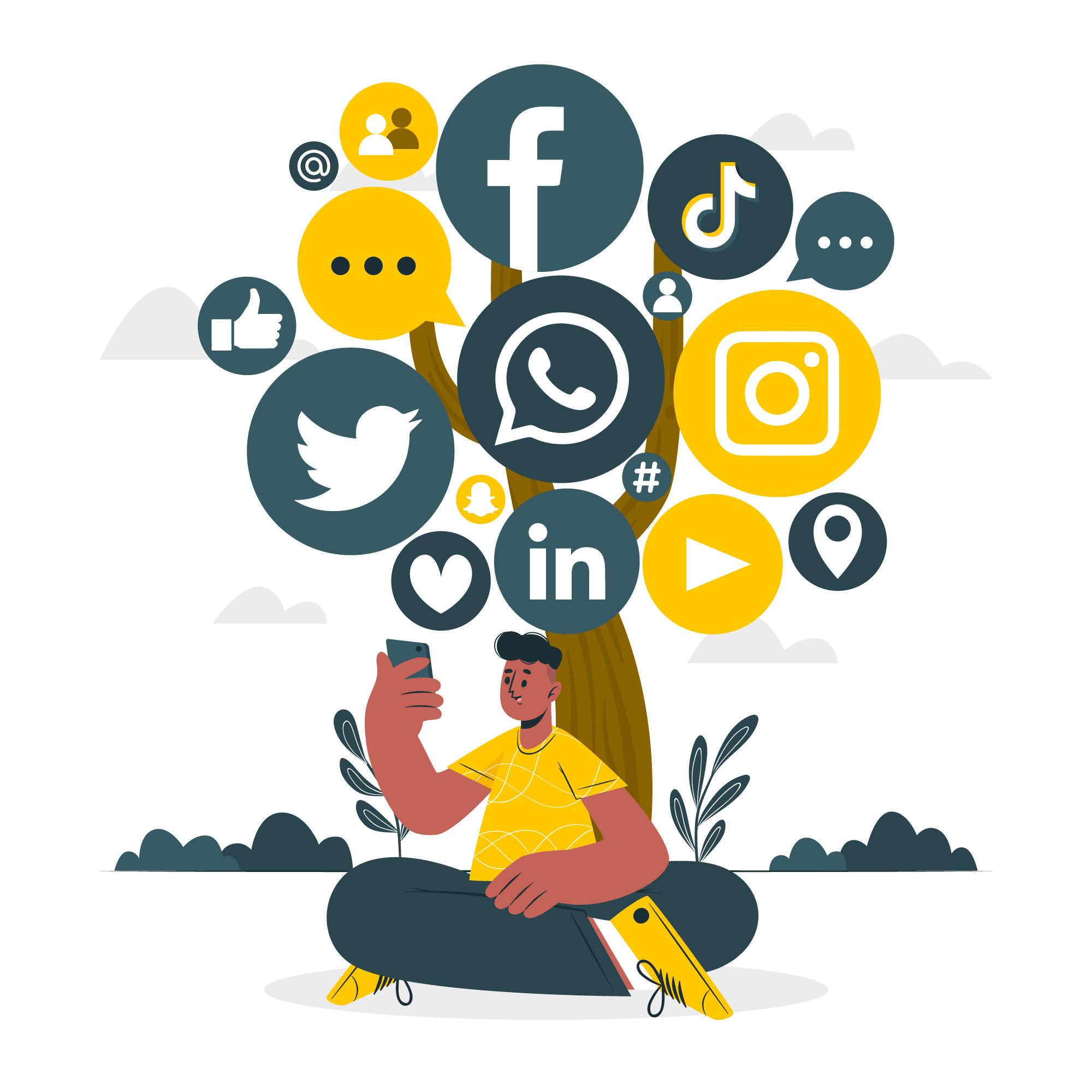

According to recent Swansea University research, cutting back on social media use by 15 minutes each day can considerably boost immune system performance, general health, and feelings of loneliness and despair.
Three researchers from Swansea University’s Faculty of Medicine and Health Sciences—Professor Phil Reed, Tegan Fowkes, and Mariam Khela—conducted the study, which was written about in the Journal of Technology in Behavior Science.
The team looked at how getting participants to cut back on social media usage by 15 minutes a day affected both physical health and psychological performance over the course of three months.
The results were contrasted with those of those who were not prompted to cut back on their usage or who were specifically instructed to engage in activities other than social media use during those 15 minutes.
Aged 20 to 25, 50 participants (33 women and 17 men) supplied weekly reports on their social media use in addition to monthly responses to questions regarding their physical and psychological well-being.
According to the findings, those who were instructed to cut back on their social media use experienced a 15% increase in immunological function on average, as well as a reduction in colds, flu, warts, and verrucae, a 50% improvement in sleep quality, and a reduction in depressed symptoms of 30%. The other two groups did not observe any changes in those measures, therefore these improvements were noticeably greater than those of those groups.
Instead of the recommended 15 minutes, those who were told to cut back on their usage actually did so by roughly 40 minutes per day, whilst the group who were told to do nothing had a daily increase of 10 minutes. It’s interesting to note that the group that was particularly instructed to engage in activities other than social media increased their usage by about 25 minutes per day.
This new report is significant because it demonstrates an experimentally-controlled relationship, which suggests a causal relationship between social media reduction and improved physical health. Previous studies have found a correlation between decreased social media usage and improvements in psychological well-being.
Professor Phil Reed, from Swansea University’s School of Psychology, said, “These data demonstrate that, when people reduce their social media use, their lives can improve in many ways—including benefits for their physical health and psychological well-being.”
“It remains to be established whether the relationship between social media use and health factors is a direct one, or whether changes in well-being variables, such as depression, or other factors, such as an increase in physical activity, mediate it.”
Professor Reed added, “That the group asked to reduce their usage and do something different did not show these benefits suggests that campaigns to make people healthier could avoid telling people how to use their time. They can resent it. Instead, give them the facts, and let them deal with how they make the reduction, rather than telling them to do something more useful—it may not be effective.”
more recommended stories
 Nanoplastics in Brain Tissue and Neurological Risk
Nanoplastics in Brain Tissue and Neurological RiskKey Takeaways for HCPs Nanoplastics are.
 AI Predicts Chronic GVHD Risk After Stem Cell Transplant
AI Predicts Chronic GVHD Risk After Stem Cell TransplantKey Takeaways A new AI-driven tool,.
 Red Meat Consumption Linked to Higher Diabetes Odds
Red Meat Consumption Linked to Higher Diabetes OddsKey Takeaways Higher intake of total,.
 Pediatric Crohn’s Disease Microbial Signature Identified
Pediatric Crohn’s Disease Microbial Signature IdentifiedKey Points at a Glance NYU.
 Nanovaccine Design Boosts Immune Attack on HPV Tumors
Nanovaccine Design Boosts Immune Attack on HPV TumorsKey Highlights Reconfiguring peptide orientation significantly.
 Rising Measles Cases Prompt Vaccination Push in NC
Rising Measles Cases Prompt Vaccination Push in NCKey Highlights 15 confirmed Measles cases.
 High-Fat Diets Cause Damage to Metabolic Health
High-Fat Diets Cause Damage to Metabolic HealthKey Points Takeaways High-fat and ketogenic.
 Chronic Brain Compression Triggers Neuron Death Pathways
Chronic Brain Compression Triggers Neuron Death PathwaysKey Takeaways Chronic brain compression directly.
 Texas Medical Board Releases Abortion Training for Physicians
Texas Medical Board Releases Abortion Training for PhysiciansKey Takeaways Texas Medical Board has.
 Acute Ischemic Stroke: New Evidence for Neuroprotection
Acute Ischemic Stroke: New Evidence for NeuroprotectionKey Highlights A Phase III clinical.

Leave a Comment